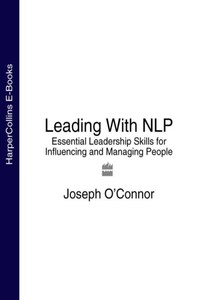Two people died in the same week in August 1997, Princess Diana in Paris and Mother Teresa in Calcutta. They could hardly have been more different on the surface. Princess Diana was rich, famous, beautiful and controversial. Mother Teresa was an elderly Albanian nun who slept on a hard bed and worked with the poor and sick on the streets of Calcutta. Yet both touched people’s hearts; they were loved and respected as well as being international figures. They were leaders. When they died, people who had never met them mourned them. Why?
Because both were not perfect icons but real people with human frailties that others could identify with. They were like us, yet they expressed something of the best in us – something of what we are and could be. These two people were in the public eye, like many others we regard as leaders – politicians, artists, musicians and businessmen – but leadership is more than a job description. Leadership is a way of acting and a way of being that we all can have, not something ‘out there’, something for other, famous people. At every level leaders have the ability to help people, express their hopes and carry their fears. I would like this book to demystify leadership, taking it down from its high pedestal and making it a natural part of life.
In the past, leaders were the rich, the powerful and the famous, great kings, warlords, scientists and thinkers, outstanding artists or craftsmen, or giants of commerce. Literature and history hold them up as examples and it seems we can only aspire to be pale copies. Over the twentieth century there has been a profound democratization in almost every aspect of human life, except leadership. At first sight this seems to make sense – after all, we can’t all be leaders, can we? No. Not if we continue to accept a narrow definition of leadership based on power, high profile and wide authority.
Let us reclaim leadership to its original meaning: taking a path or going on a journey. Leadership is the journey itself, the activity, not the destination – a stimulating and fulfilling journey where planning and preparation are also important and enjoyable in their own right.
I see leadership skills as the most important resource we have to develop to deal with the capricious times in which we live. That we live in times of rapid change is a truism – we have to adapt to the sort of breakneck changes in one lifetime that previously would have taken generations. In the world of business, markets and strategies change fast. We are on a high-technology carousel that never seems to slow down. The carousel spins with bewildering speed as we strive to deal with the present and shape the future but with systems and organizations designed to cope with the past. We have more information, but knowledge – information that matters and makes a difference – is as hard as ever to acquire. We take a sieve to the torrent of information that drenches us every day and hope to catch something of value.
How can we pin down leadership, one of the most talked about and written about subjects in business? Is it charisma? Influence? Inspiration? Stewardship? Yes. It may be. Because the reason you set out on your journey, your chosen destination, who you travel with and how you travel may all vary. That’s what is so infuriating and valuable about leadership. There are many roads, many destinations and many ways to travel.
So why learn to be a leader? To be involved in what really matters to you. To be able to do what inspires and moves you. To have companions on your journey. In any area where you want more influence you must be a leader.
Leadership has a paradox at its centre – while greatly prized, you cannot grab it for yourself directly. It is a gift which can only be given by others. Being a leader has no meaning without others who choose to travel with you. A leader all alone is like the sound of one hand clapping.














